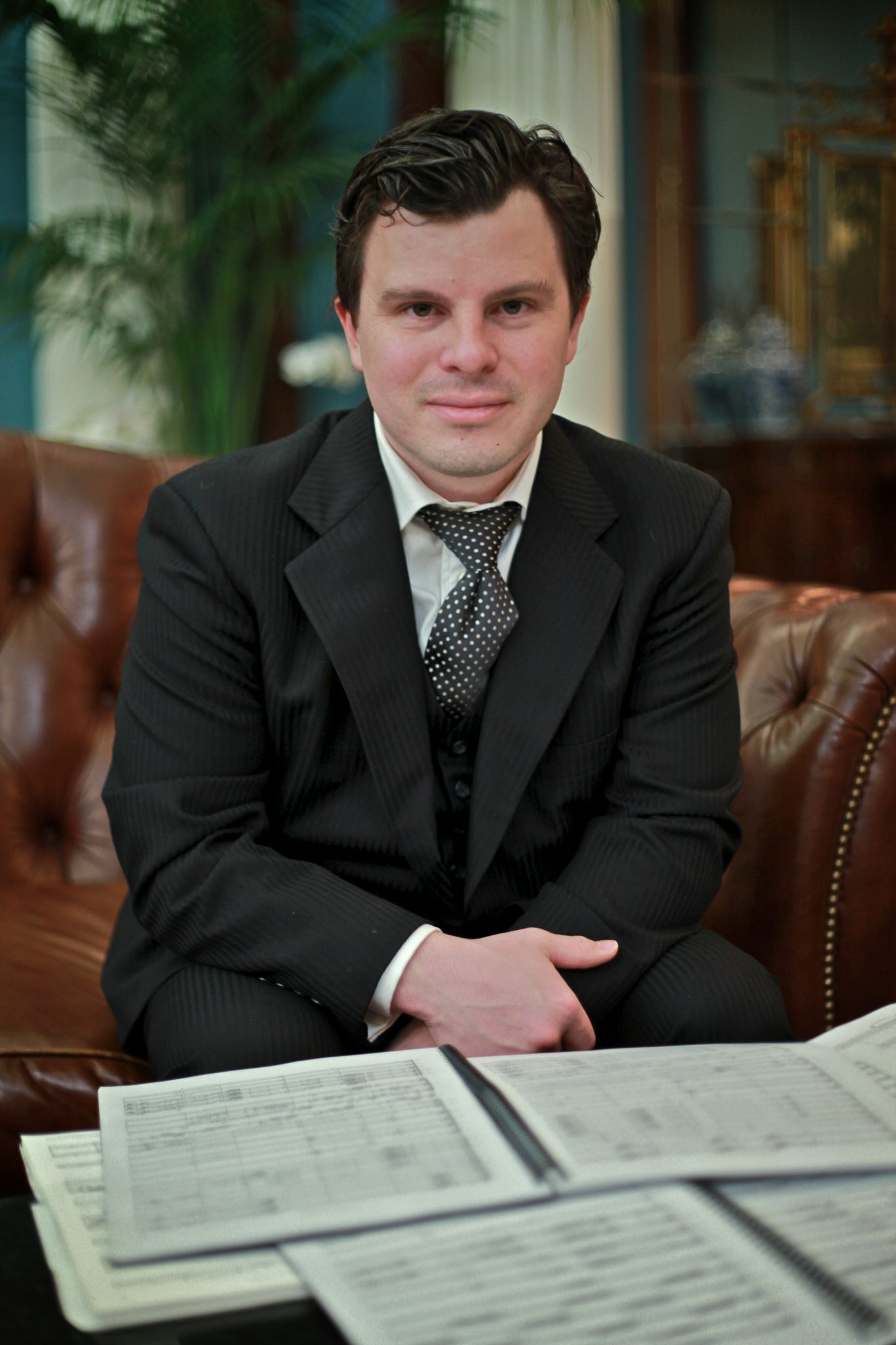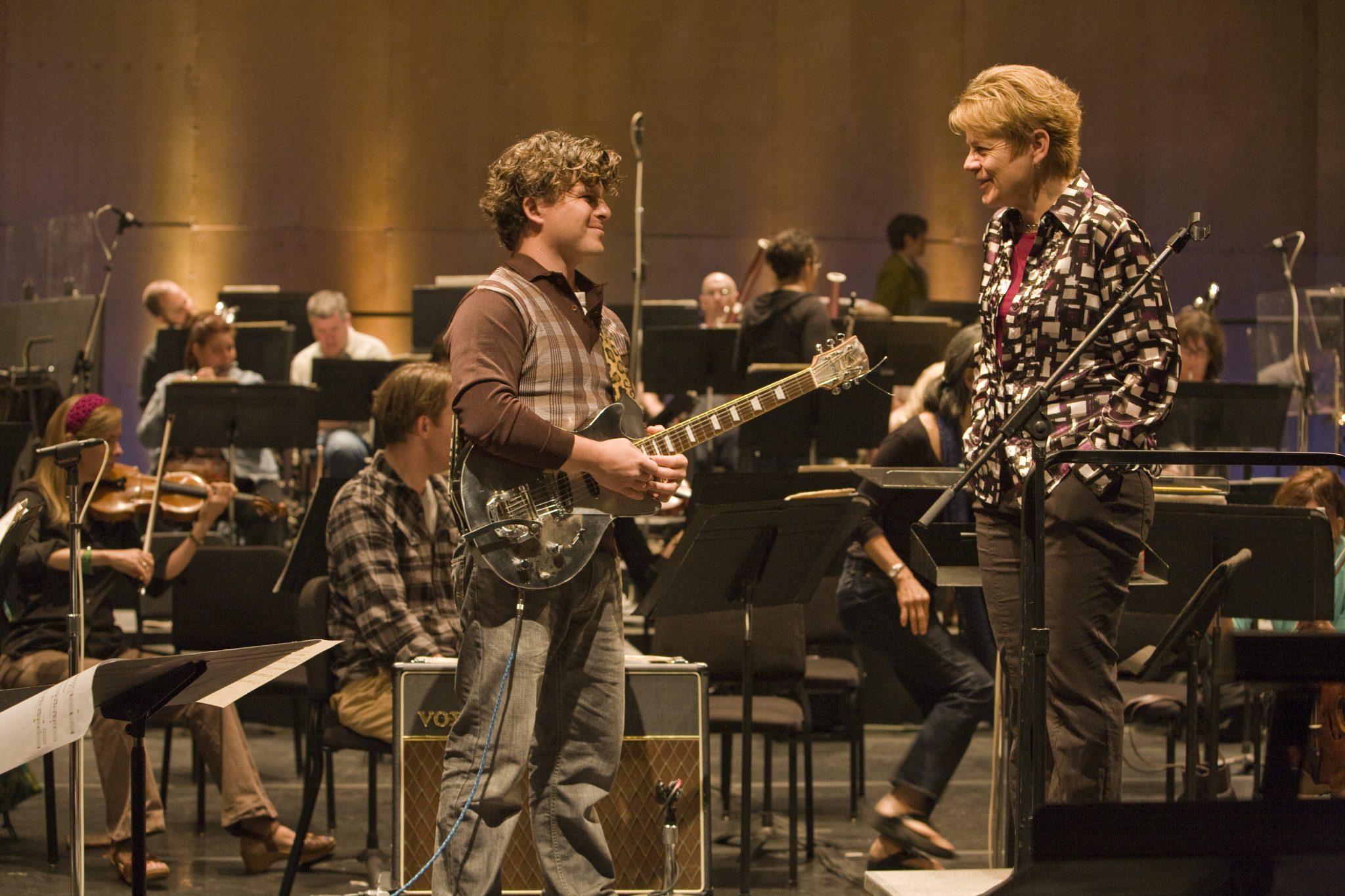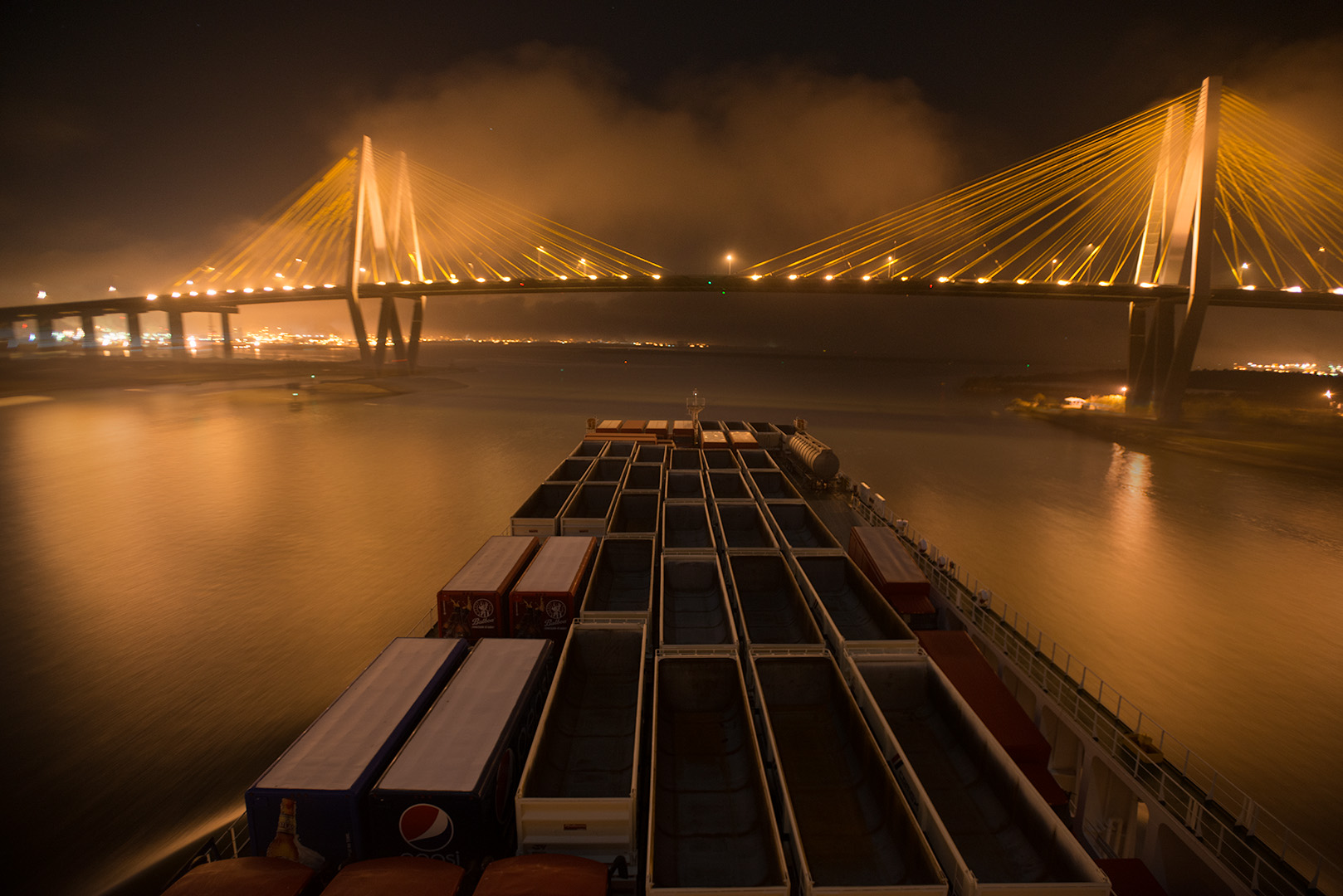In a recent conversation with composer D. J. Sparr, we stumbled onto the fact that his work “On This Muddy Water” premiered in Houston this week and I was hooked. The fascinating song cycle, featuring Lauren Pastorek, mezzo-soprano, and Heath Martin, baritone, is based on interviews collected through the Working the Port project conducted by the Folklife and Traditional Arts Program of the Houston Arts Alliance. Although these stories come from a very specific place, the themes are universal. I couldn’t wait to hear more about “On This Muddy Water” and more of D. J.’s thoughts.

An accomplished composer and electric guitarist, D. J. Sparr has caught the attention of critics with his eclectic style, described as “pop-Romantic… iridescent and wondrous” (Mercury News) and “suits the boundary erasing spirit of today’s new-music world” (New York Times). The Los Angeles Times praises him as “an excellent soloist” and the Santa Cruz Sentinel says that he “wowed an enthusiastic audience…Sparr’s guitar sang in a near-human voice.” D. J. Sparr recently completed his tenure as the 2011-2014 Young American Composer-in-Residence with the California Symphony where his works were premiered by Nicholas McGegan, Donato Cabrera, and Robert Treviño. Recent premieres have been by the Washington National Opera, eighth blackbird, the Dayton Philharmonic, Richmond Symphony, and Hexnut. Sparr was awarded the $10,000 grand prize in the orchestra category of the BMG/Williams College National Young Composers Competition and has received awards and recognition from BMI, the American Music Center, Eastman School of Music, George Washington University, the League of Composers/ISCM, and New Music USA. A fast rising star, D. J. Sparr’s musical vision is bound to catapult him to the realm of indispensable American composers.
Welcome, D. J. You are not only an accomplished composer but also a gifted guitarist. Can you talk about how those two sides of your musical personality work together and inform each other?
When I am composing, the guitar is always nearby. I don’t use it all of the time, but playing it is helpful when I am looking for a lyrical gesture or a melodic idea. If I want to jump-start the creative process by improvising, I’ll grab it. Some of my pieces began as a guitar gesture which I translate for other instruments. As an instrument, it can be both wild as well as intimate. I love the bright lights of the stage and a searing guitar sound, but I also enjoy strumming a soft chord while in a meditative state. This diversity is present in my compositions.

Last week marked the première of your work “On This Muddy Water” for Houston Grand Opera’s HGOco. Did you apply for this opportunity? What was the process like?
The folks at HGO are familiar with my work through mutual acquaintances and collaborators. Sandra Bernhard and I have known each other for some time now. She attended the première of “Approaching Ali” in June, 2013. She thought my “voice” would fit well for this project. The process was pretty conventional in terms of the piece being commissioned. They wrote and asked if I was interested in writing this piece. I took time to listen to the interviews provided by the Houston Arts Alliance. I was struck by many of the stories, so, I asked HGO for a collaborator for the text. They paired me with Janine Joseph who has worked with them before. We worked out the commission details through my publisher, Bill Holab Music and off we went!
The subject matter of this song cycle for mezzo-soprano, baritone, clarinet, violin, cello, and percussion is very specific. It is based on the lives and stories of different people who have worked on the Port of Houston. What spoke to you about these various stories and how did that inform your musical writing?
Lou Vest, a Ship Pilot said he was walking next to the channel at night, saw ships from Bombay, Bahamas, and Vanuatu. The starlight struck the water like lightning as he passed. In his interview, he said, “I wanted to stop right then and write a poem about that moment.” That is where I thought, “Hey, WE can write this poem,” and I had a vivid idea about the accompanying music.
I think of the piece as a series of portraits. Some of the personalities include a ship pilot, the first female pilot – who was in a tornado event with a boatman!, a priest who brings gifts onboard a Russian ship during the holidays and drinks vodka with a Commissar and Captain, men who were part of an arduous merger of two unions, and a song about the father-son relationship of learning a trade through one’s family. Each of the characters has their own sound world.

Were you conscious of making the work speak to other audiences outside of the specific location?
Very early on in the process, I told Janine that I wanted the piece to be able to speak to not only the community around the Ship Channel, but also to anyone on any concert series anywhere – whether a new music concert, a chamber music series, or a vocal recital. As a model, there are pieces with very specific concepts—Joseph Schwantner’s “New Morning for the World”, Copland’s “A Lincoln Portrait”, Elgar’s “Enigma Variations”, or Virgil Thompson’s portrait pieces—which work perfectly in this vein. If the words and music can touch the human heart or describe an element of the human endeavor, then the piece should work anywhere. Having not been a resident of Houston, my hometown of Baltimore was a place I thought about while writing the piece.
As you said, you worked with librettist Janine Joseph for “On This Muddy Water.” You also collaborated with librettists Mark Campbell & Davis Miller on another recent, impressive project “Approaching Ali” which originally premiered at Washington National Opera and has an upcoming performance with North Carolina Opera. Will you tell us more about that collaboration between the composer and librettist partner?
I have really enjoyed the interaction of librettist and composer. Janine was a pleasure to work with. We both felt a responsibility to stay true to the interviewee’s stories while dramatizing their situations and emotions. Davis Miller is a world-class memoire novelist who, with Mark Campbell’s magic, offered us an indescribable story and perspective on his relationship with Muhammad Ali. Mark had the amazing ability to see all of this from an outside perspective and create a wonderful structure for the piece. It is sometimes overlooked how important it is for a composer to have someone they trust who they can bounce their ideas off of while writing music.
You clearly are unafraid of writing for the voice. What appeals to you about that type of writing in both opera and chamber ensemble?
The human voice brings with it a ubiquitous and universal quality. When words and music unite, it creates a whole greater than the sum…there are no limits!
Interested in seeing one of the performances of “On This Muddy Water”? There is another performance tonight at 5:30 and two more in January. Find more details by clicking here. Living in Raleigh and want to catch “Approaching Ali” in January? You can find more details for that by clicking here.
As always you can find The Sybaritic Singer on Facebook and Twitter. I hope you’ll join me there.
